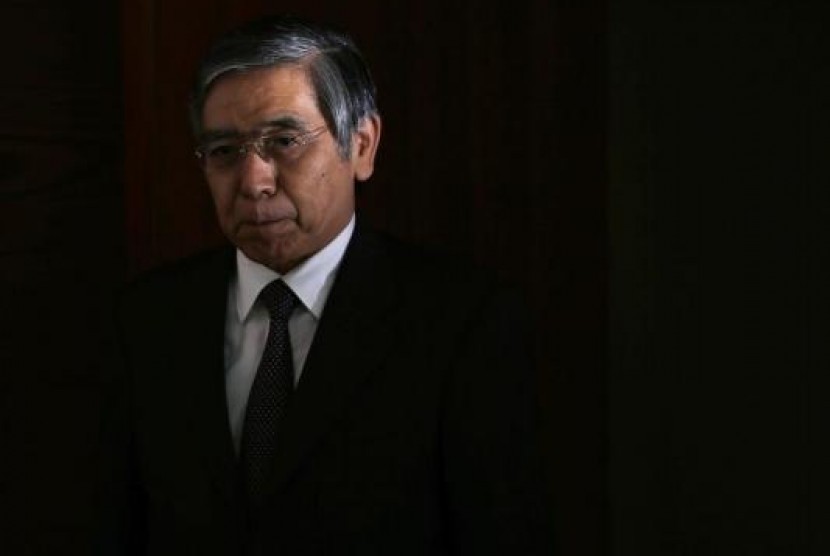REPUBLIKA.CO.ID, TOKYO - The Bank of Japan shocked global financial markets on Friday by expanding its massive stimulus spending in a stark admission that economic growth and inflation have not picked up as much as expected after a sales tax hike in April.
BOJ Governor Haruhiko Kuroda portrayed the board's tightly-split decision to buy more assets as a preemptive strike to keep policy on track, rather than an admission that his plan to reflate the long moribund-economy had derailed.
But some economists wondered if pushing even more money into the financial system would be effective as long as consumer confidence continues to worsen and demand remains weak.
"It's clearly a big surprise given Kuroda's repeated insistence that policy was on track and assorted politicians have been warning about the negative side of a weak yen currency," said Sean Callow, a currency strategist at Westpac.
"We salute the BoJ for admitting that they weren't going to reach their goals on inflation or GDP, though we do note that the new policy equates to about $60 billion of quantitative easing per month. This perspective does raise the question of just how much impact monetary policy is having."
The jolt from the BOJ, which had been expected to maintain its level of asset purchases, came as the government signaled its readiness to ramp up spending to boost the economy and as the government pension fund, the world's largest, was set to increase purchases of domestic and foreign stocks.
"We decided to expand the quantitative and qualitative easing to ensure the early achievement of our price target," Kuroda told a news conference, reaffirming the BOJ's goal of pushing consumer price inflation to 2 percent next year.
"Now is a critical moment for Japan to emerge from deflation. Today's step shows our unwavering determination to end deflation."
Kuroda said the BOJ's easing was unrelated to major portfolio changes by the Government Pension Investment Fund (GPIF) also announced on Friday, but the effect of the day's two major decisions means that the central bank will step up its buying of Japanese government bonds, offsetting the giant pension fund's increased sales of them.
Contrast move
The BOJ's move stands in marked contrast with the Federal Reserve, which on Wednesday ended its own "quantitative easing," judging that the US economy had recovered enough to dispense with the emergency flood of cash into its financial system.
In a rare split decision, the BOJ's board voted 5-4 to accelerate purchases of Japanese government bonds so that its holdings increase at an annual pace of 80 trillion yen (723.4 billion USD), up by 30 trillion yen.
The central bank also said it would triple its purchases of exchange-traded funds (ETFs) and real-estate investment trusts (REITs) and buy longer-dated debt, sending Tokyo shares soaring and prompting a sharp sell-off in the yen.
Kuroda said that while the economy continues to recover, plunging oil prices, slowing global growth and weak household spending after the tax hike were weighing on price growth.


